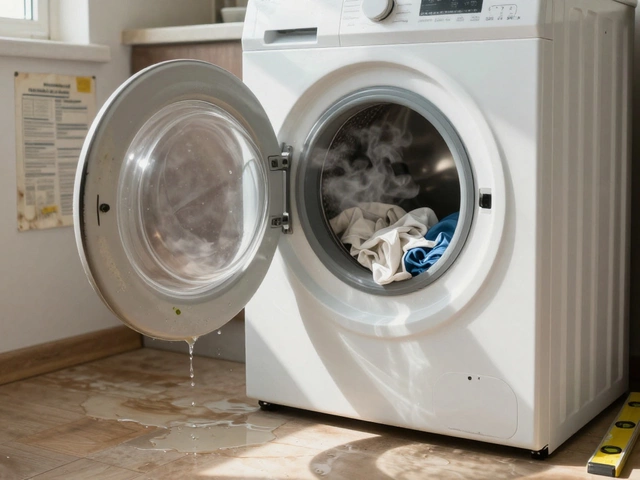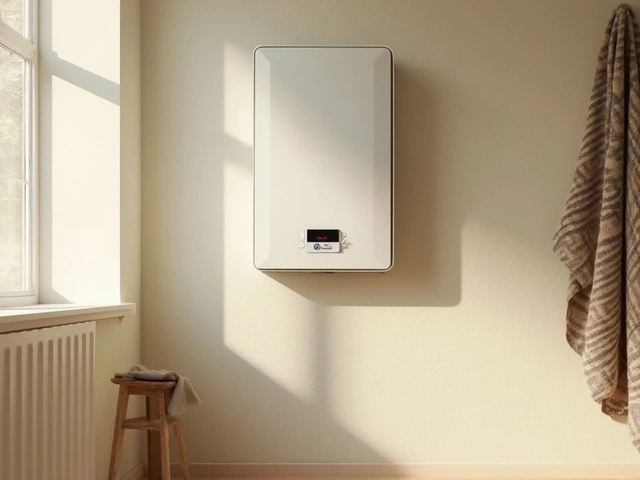If your kitchen or bathroom feels stuffy, the ventilation fan is probably the culprit. A sluggish or noisy fan not only smells bad, it can lead to mould and higher energy bills. The good news? Most fan problems are easy to sort yourself, and you don’t always need a pro.
First, check the basics. Turn the fan on and listen – a humming sound usually means the motor is working, but dust on the blades can block airflow. Open the cover (you’ll typically need a screwdriver) and give the blades a good clean with a soft brush. While you’re there, wipe the motor housing and remove any cobwebs. A clean fan often regains full power.
If the fan still struggles, the problem might be the capacitor. This small part helps the motor start; a faulty capacitor lets the fan whirr weakly or not at all. Swapping it out costs under £10 and takes only a few minutes. Just note the voltage rating on the old capacitor and match it when buying a replacement.
Another frequent snag is a loose wiring connection. Shut off power at the breaker, then pull the fan away from the wall. Inspect the wires – any loose screws or burnt spots need tightening or replacement. Secure connections restore proper voltage and stop the fan from cutting out.
Sometimes repair isn’t enough. If the fan rattles loudly, smells burnt, or runs for years without a noticeable improvement after cleaning, it’s time for a new unit. Most residential fans last 8‑12 years, so if yours is older, factor in the cost of a fresh, energy‑efficient model.
Choosing a replacement is simple. Look for a fan with the same airflow rating (measured in CFM) and size of the existing duct. Higher CFM models move more air but may be louder, so balance performance with noise level. Installing a new fan usually involves disconnecting the old unit, attaching the new one to the duct, and wiring it up – all doable in under an hour.
Even after installation, keep the fan in top shape. Schedule a quick clean every six months, check the motor housing for dust, and replace the filter (if your model has one) annually. Regular upkeep prevents most breakdowns and extends the fan’s life.
Got a stubborn problem you can’t crack? Give a qualified electrician a call. They have the tools and safety knowledge for motor repairs, wiring issues, or any work that involves the main power supply.
So, next time the air feels stale, remember: a clean blade, a good capacitor, and tight wires solve most fan woes. Keep these tips handy, and your home will stay fresh without spending a fortune on service calls.

Trying to figure out if you need a ventilation fan or an extractor fan? This article breaks down the differences between the two, explains how each one works, and shares tips for choosing and maintaining the right fan for your home. You’ll also pick up advice on recognizing issues, making easy repairs, and knowing when it's time to replace. If you’ve got problems with humidity, bad smells, or stuffy air, this guide is for you.

Trying to figure out if you should repair your electric stove or just buy a new one? This article breaks down the real costs, common repairs, and the value of fixing versus replacing. Find out what issues are usually fixable, what repairs make sense, and when to let go. You'll also get practical tips for simple DIY fixes and signs you need a pro. Make a smart choice for your kitchen and your wallet.

Wondering how long it takes to swap out an old boiler for a new one? This article spells out exactly how much time you’ll need, what really affects the timeline, and offers practical tips to speed things up. Get the full breakdown, including what you can do before installation day and how to avoid surprises. If you want your heat and hot water back fast, this guide is for you. Find out what to expect from your boiler replacement and how to stay one step ahead.

Most washing machines last 8-12 years, but signs like loud noises, leaks, or error codes mean it's time to consider repair or replacement. Learn how to extend its life and when it's better to buy new.

Troubles with your water heater might mean it needs a reset. Knowing when and how to reset it can prevent cold showers and unnecessary stress. This guide covers signs your water heater needs resetting, why it's important, and how to do it safely. Plus, learn some handy maintenance tips to keep it running smoothly.

Struggling with a kitchen extractor fan that's lost its power? This guide explains how to find and fix common blockages that cause bad smells and poor airflow. Learn step-by-step how to safely clean your fan and make it work like new, plus get handy maintenance tips to stop future clogs. We break down the process so you don't need tools or special skills. Get your kitchen back to normal without calling in an expert.